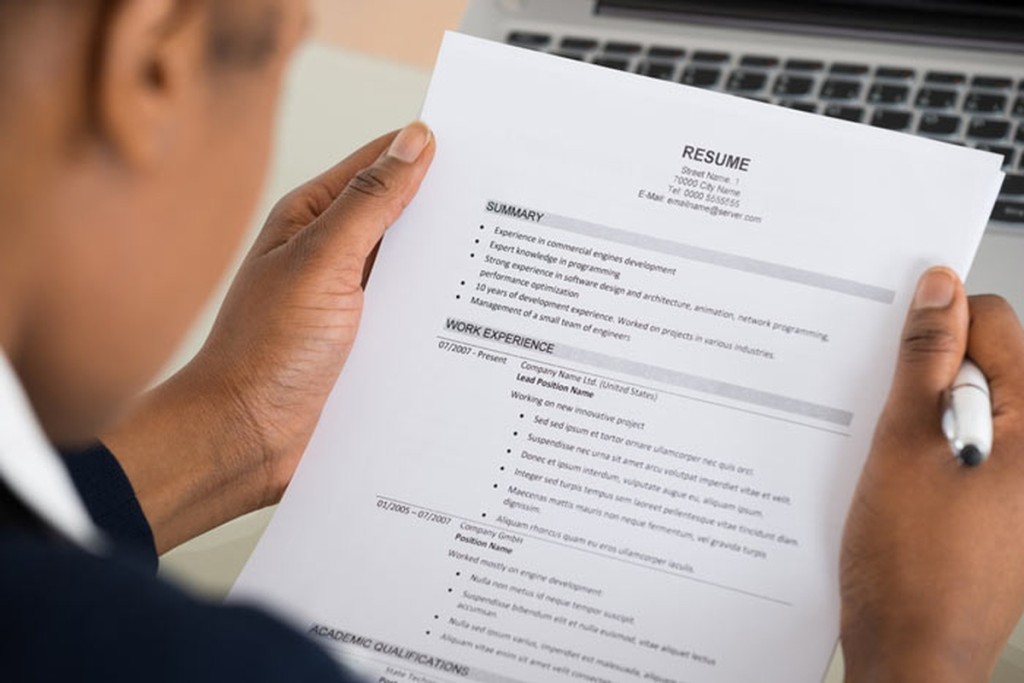Spell Check
Always, always, ALWAYS spell and grammar check your resume. Please. It is the simplest way to make your resume seem more professional. If your resume is hard to read or understand, than your recruiter will have trouble getting the information they need from it and will likely move on to another resume. And if you’re reading this again after getting through the entire blog, thank you for following directions, and check your resume one more time to make sure everything is good to go. You don’t want to show up for your interview and find out at that moment that your name is misspelled. (It happens more often than you think!)
Add Your LinkedIn Profile
At this point, if you don’t have a LinkedIn profile yet you need to get one. For those who don’t know, LinkedIn is like Facebook for professionals. It is one of the best online resources job seekers can use to market themselves to prospective employers, and to make connections within their field of work. By adding your profile to your resume, you are opening the door to make more connections; which can lead to more job interviews down the road if the one you are currently applying for doesn’t work out. LinkedIn is an amazing social media platform, just make sure you avoid posting your weekend party pics to this website (This also happens more often than you think)
Delete Irrelevant Data
Never, ever, EVER have anything on your resume that isn’t relevant to the position you are applying for. Content space on your resume is limited and it should be filled with content that relates to your interview. If you have experience as a fry cook, but you’re interviewing for a clerical position now, maybe don’t include your burger-flipping abilities on your resume. Instead, say that you have experience in fast-paced environments. Always highlight those skills and experiences that will show your recruiter that you are qualified for the position you’re applying for.
Increase Line-Spacing
Readability is the most critical element your resume can have. Including tons of relevant experience and skills means nothing if the recruiter cannot easily find the information. One way to help separate out the sections of your resume and make it easier for your interviewer to find the info they are looking for is to increase the line-spacing. This breaks up your resume into little bite sized chunks that allow the recruiter to skim your resume more effectively. Don’t go too crazy though. Just like you don’t want your resume to be crammed full of text, you don’t want to have large sections of empty white space either.
Leave High School in the Past
Unless you JUST graduated high school, there is no real reason why you should include this level of education on your resume. Having your high school education on your resume years after you graduated makes you seem like that guy from your hometown who can’t stop bragging about a touchdown he caught during a JV football game in ’97. Was it impressive at the time? Sure. But years later, no one really cares all that much. The only education recruiters will typically care about is college level, and even then they value your skills, personality, and experience more than your GPA. You have a limited amount of space on your resume, and you don’t want to waste any of that space on information that your recruiter has no interest in. Leave high school behind.
Remove Acronyms
“So I’ve worked within several CMS’s that operated under a CPC structure, with mostly B2B objectives”. Now, raise your hand if you understood what any of that meant. Probably not, right? You don’t want to risk confusing your recruiter during an interview with acronyms they may not understand. Always take the time to write out the complete name of a position, operation, or business that you have worked with. Even if it is something as universally understood as HR, write out Human Resources. This will eliminate any chance of confusion and will make your resume easier for the recruiter to read.
Limit Distractions
Unless you are going for a creative or graphic design position, your resume should not have any photos, graphics, or unnecessary designs. The design of your resume should be, for lack of a better word, boring. The interest the recruiter has in your resume is the content of the resume, not the design surrounding it.
Keep it Recent
Remember the friend from your hometown, the one who’s probably still talking about his JV touchdown? Well, just like you want him to bring up some more recent accomplishments in conversation, your recruiter will want you to do the same on your resume. Skills can lost, especially if they aren’t utilized on a regular basis. So, if you got a Microsoft Office certification back when you had to listen to the wails of a dying phone before getting online, you should consider either getting a more recent certification or leaving it off your resume altogether. Your resume should reflect the last 10 years of relevant skills and experience.
Shorten Your Bullet Points
Bullet points are a great way to summarize your experience in an organized manner, and they should be small yet powerful: you know, like a bullet. Some people, however, decide to channel their inner Charles Dickens and turn each bullet point into a paragraph that goes into incredible detail of their day to day responsibilities at each job. Your resume is a snapshot of your most marketable skills, not a novel recounting your entire professional journey. Any other info can be relayed during the interview. Make sure your bullet points stay around 7-10 words at the most to help ensure one position doesn’t take up the entire page of your resume.
Have it Reviewed
Once you make all the changes above, give it a quick once-over. You want to make sure it has a consistent tone, accurately reflects your abilities, and that there are no spelling mistakes (return to tip No.1). Once you’re finished, hand it off to a friend or colleague and have them review it as well. The more eyes that see your resume before the recruiter, the more opportunities you will have to find and correct any mistakes.
-Tyler Geeve, Staff Source Marketing/Office Assistant









